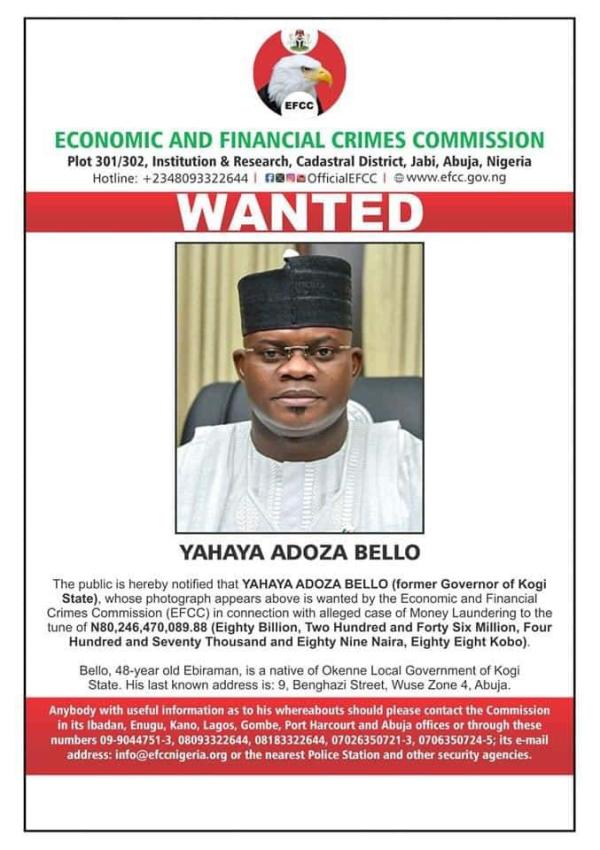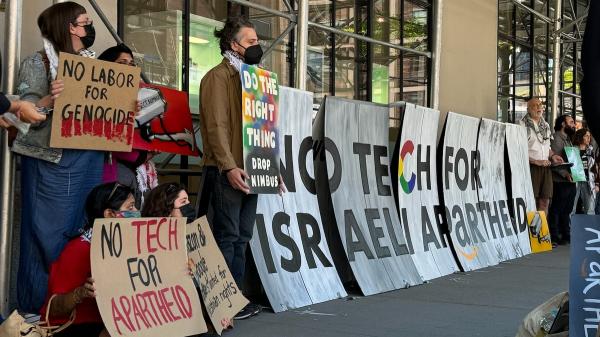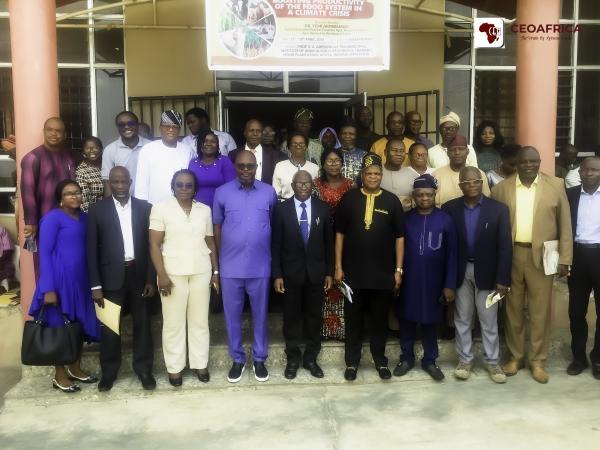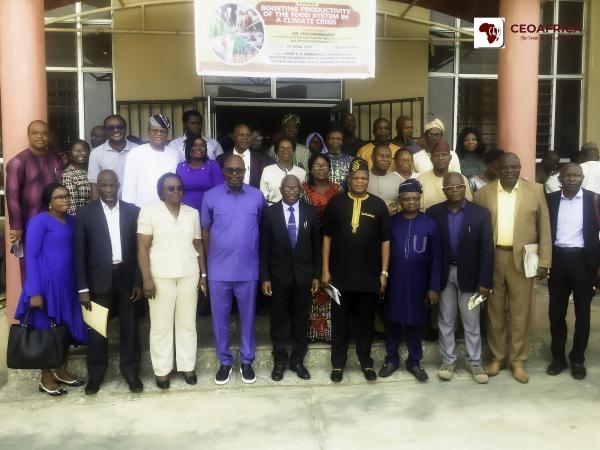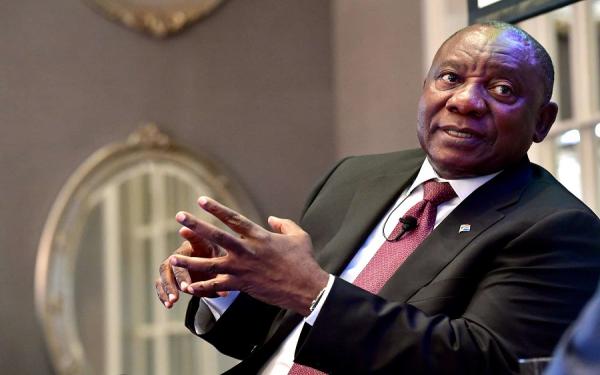
South Africa’s defence minister has said that no government could stop the type of urban unrest currently gripping the country, following a fresh wave of mob violence in Johannesburg on Sunday.
Nosiviwe Mapisa-Nqakula made the comments on local TV station eNCA on Monday, after her government was accused of failing to bring the anti-foreigner violence that first began two weeks ago under control.
Ms. Mapisa-Nqakula denied the attacks were xenophobic in nature, but instead said they were orchestrated by criminals taking advantage of people’s frustrations and the economic hardship gripping the country.
“The reality is that we are an angry nation and we must talk about it, we must take responsibility,” she said, adding: “What’s happening can never be prevented by any government. This is well orchestrated by criminal elements.”
Sunday’s violence, which left two people dead and up to six injured, began after a veteran Zulu politician gave a speech in Johannesburg to members of his tribe to try to quell tensions between locals and foreigners.
Inkatha Freedom Party founder Prince Mangosuthu Buthelezi had been holding a meeting with predominately Zulu hostel residents in Jeppestown in an attempt to bring the xenophobic violence in the area to an end.
He said he was depressed and ashamed about the events that had unfolded over the past 10 days, as it was tarnishing the name of South Africa across the continent.
However, a section of the crowd ignored his pleas for peace and went on the rampage later in the day in Johannesburg’s central business district, looting and attacking foreigners, who they blame for taking jobs they say are rightfully theirs.
Sunday’s deaths mean that at least 12 people have been killed – 10 South Africans and two foreigners – in the violence so far. More than 400 people have also been arrested in connection with the unrest, according to police.
President Cyril Ramaphosa also condemned Sunday’s violence, saying the authorities would “not allow sporadic lawlessness and violence” to disrupt the safety and livelihoods of South Africans and foreign nationals living in the country.
The crisis has led to diplomatic tensions between South Africa and other African nations, most notably Nigeria, which last week sent an envoy to the country seeking assurances that more will be done to protect its citizens.
South Africa’s international relations minister Naledi Pandor met the heads of diplomatic missions on Monday to try to allay fears of further violence against their citizens.
In addition, she called on African leaders not to use inflammatory language when addressing the matter in their own countries, in an effort to avoid reprisal attacks against South Africans.
Buhari Orders Evacuation Of Nigerians
For the first time since the spike in xenophobic attacks by South Africans on foreigners, President Muhammadu Buhari has ordered the immediate evacuation of Nigerians from that country.
He passed the directive on Monday to the Ministry of Foreign Affairs, under the purview of Geoffrey Onyeama, to put arrangements in place for the evacuation of all Nigerians who were willing to return home but noted that it should be voluntary.
His action was sequel to the report received from the special envoy he deployed to South Africa, Ambassador Ahmed Rufai Abubakar, Director-General, National Intelligence Agency (DGNIA).
Buhari, having taken note of the report, also instructed the Ministry of Foreign Affairs to continue to engage with appropriate authorities on the concrete measures the South African government was expected to take.
The delegation, which was in South Africa between September 5 and 7, had gone to express Nigeria’s displeasure over the xenophobic attacks on Nigerians and other nationals.
Buhari through his special envoy had conveyed to the South African President, Cyril Ramaphosa, the need for his government to take visible measures to stop violence against citizens of brotherly African nations.
Amb. Abubakar specifically told Ramaphosa that President Buhari was worried that the recurring issue of xenophobia could negatively affect the image and standing of South Africa as one of the leading countries on the continent, if nothing was done to stop it.
The special envoy also conveyed the assurance of President Buhari that the Nigerian government was ready and willing to collaborate with the South African government to find a lasting solution to the involvement of few Nigerians in criminal activities, and to protect the lives and property of the larger groups of law-abiding Nigerians.
President Buhari, however, assured that his government would guarantee the safety of lives, property, and business interests of South Africans in Nigeria.
On his part, President Ramaphosa had agreed that the violence was most disconcerting and embarrassing, adding that his government completely rejected such acts which undermined not only the country’s image but also its relations with other African countries.
He reaffirmed his stand against criminality and commitment to do everything possible to protect the rights of Nigerians and other foreign nationals in the country.
During his visit to South Africa, the Nigerian special envoy interfaced with his South African counterpart, reviewing the situation of foreign emigrants in general and Nigerians in particular.
They agreed to work together to find a permanent solution to the root causes of the recurring attacks on Nigerians and their property.
Recall that a local air carrier in Nigeria, Air Peace, has been placed on standby to evacuate Nigerians from South Africa prior to the visit of the envoy, but it was said to have been botched for logistic reasons.
640 Nigerians Ready To Fly Back Home
Meanwhile, about 640 Nigerians in South Africa have voluntarily registered to return home following the xenophobic attacks in that country, according to Abike Dabiri-Erewa, chairman, Nigerians in Diaspora Commission (NIDCOM).
Dabiri-Erewa, who disclosed this after a closed door meeting with the Senate Committee on Diaspora and non-governmental organisations in Abuja on Monday, said that the volunteers would arrive in Nigeria in a couple of days.
“As I speak with you now, we have 640 Nigerians voluntarily registered to come to Nigeria and they will be home in a couple of days, and we believe that more will still be coming to register.
“Right now, we have 640, that means two planes will convey them home, now the envoy will be briefing the president and with everything in place, the president will be taking a few more decisions after the briefing,” she said.
She said Federal Government had pledged that any Nigerian that wanted to return would be given the required support.
She said that the returnees would be encouraged to enroll and participate in the various social intervention programmes of the government.
“We will encourage them to enroll in small scale entrepreneurial programme with the Bank of Industry with the social investment programme, so there are things that they can do’’, she said.
She, however, reiterated that government would continue to demand for compensation for property of Nigerians destroyed in the various attacks.
She said eight South African police personnel had been charged to court for their involvement in the killings of Nigerians in the previous attacks, while another four officers were recently arrest.
“So we will continue to work on that and we assure Nigerians wherever they are that this government will come to their aid.
“For Nigerians in South Africa, they have also been advised to remain calm, while we continue to ensure justice for all Nigerians affected.
“There must be consequences for actions; South Africa should have political will to talk to their people to put a stop to it.
“So a lot of education, awareness need to go down to the South Africans on the street, who still believe that foreigners are their problem,” she explained.
The chairman of the committee, Sen Bashiru Ajibola, said that they had been briefed on the steps taken so far by the Federal Government on the attack of Nigerians.
He said that further measures on ending the attacks would be decided by President Muhammadu Buhari after being briefed by the special envoy to South Africa, who just returned to Nigeria.
Nigeria Can Drag SA To The Hague For Compensation— Oyebode
Prof. Akin Oyebode, a professor of International Law, on Monday said Nigeria can establish a legal case against South Africa at the International Criminal Court (ICC) at The Hague if it fails to pay compensation for the killing of Nigerians during the xenophobic attacks in that country.
Speaking on Channels Television, Oyebode, who said Nigeria must insist on compensation, said she must assert her will so that the maltreatment and humiliation of Nigerians must stop either in South Africa or any other countries.
“I believe Nigeria has to insist on payment of compensation, some form of reparation because in International Law, once a duty has been violated, there is an obligation to remedy that injury and South Africa owes a duty to accord fellow Africans domiciled in their country an international minimum standard of treatment.
“South Africa has a duty to pay compensation for the injuries Nigerians have suffered. Nigeria has a freedom of choice either to go to African Court on Human and Peoples Rights in Arusha or to go to the International Court of Justice in The Hague or the International Criminal Court at The Hague in terms of establishing the obligation of South Africa.
“I know some people might say that may be too severe but the South Africans treated us with askance, we have to assert our will and ensure that such is not repeated in any other country”.












